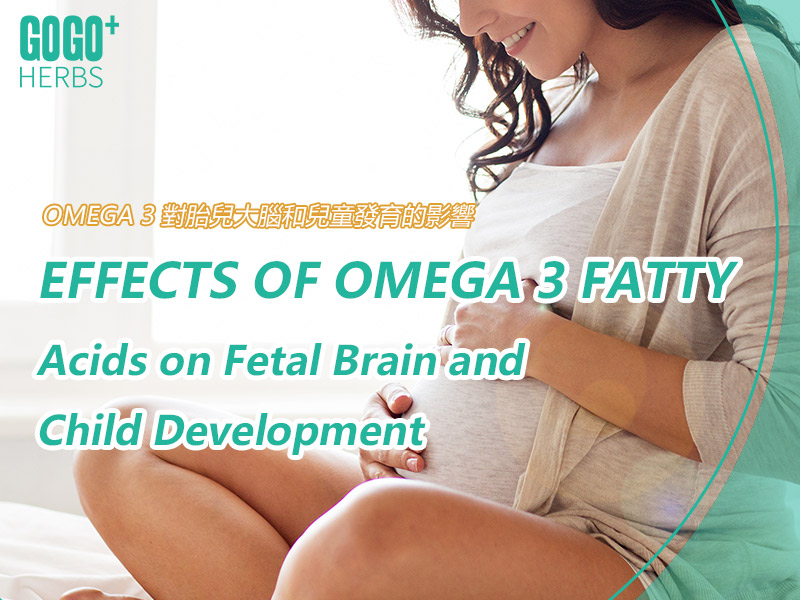
Effects of Omega 3 Fatty Acids on Fetal Brain and Child Development
Studies unanimously agree that fetal nutrition can potentially affect a child’s developmental milestones. However, today, a major cardinal of infant growth is their cognitive development. Consequent to the promising results of numerous research , pediatrics and healthcare practitioners prescribe early supplementation of omega-3 fatty acids (docosahexaenoic acid) for improved cerebral maturation in newborns.
COGNITIVE POTENCY OF OMEGA 3 FATTY ACIDS: UNDERSTANDING THE SCOPE
As a matter of fact, the original scope of this “subject” is particularly broad and involves all classes of polyunsaturated acids and folates (folic acid). Mutual results of these studies see a definite link between the polyunsaturated acids and folic acid on child development , fetal growth, gestational length, and cognitive functioning in children (fetuses and up to 7-year-olds) and older adults with cognitive impairment (dementia, glaucoma and Alzheimer’s disease).
However, this expository piece restricts itself to “HOWs” and “WHYs” of the mental effects of Omega 3 fatty acids on infant neurodevelopment. Consequently, the commentary focuses on the pregnancy and weaning stages of child care alongside the pivotal role of Omega 3 fatty acids in maternal nutrition.
COGNITIVE DEVELOPMENT: WHAT IT IS AND WHAT IT MEANS
Ever came across a smart kid or little genius? I bet your answer is in the affirmative. A popular goal of every parent in the world is always the birthing of hale and healthy children void of any neurological deficit. However, achieving that goal requires taking specific proactive steps prenatally and beyond. Becoming mindful of your fetal mental growth is worth every bit of effort. It goes ahead to guarantee their intellectual performances as they advance in age.
Most times, a child’s developmental milestone is an integral index of the child’s future success. Within the first few weeks after birth, newborns typically manifest a higher physical growth rate and learning capabilities. In the latter case, learning/cognitive performances differ from kid to kid, depending on the interplay of many biological, physical, and nutritional factors. Thus, in a case of any lurking discrepancy on the issue of child development, it is trite that parents seek the advice of a certified medical practitioner.
After birth, some early cognitive development in kids includes visual acuity, non- verbal communication, emotional expression, and a near-accurate understanding of what they see, hear, or feel. At early stages, their learning abilities are top-notch; they cast curious stares at you, hoping to learn the day’s lesson from your examples. Within a jiffy, these infants manifest acute psychomotor and mental development. For a start, sharper eyes give them a good sense of recognition and a good focus on learning. They understand what a grin means and how to react back to a frown.
In some cases, smart toddlers know how to toggle the light switch or identify and use the red button on the remote to put out the TV. These remarkable instances go on and on. Bottom line; seeing your kid exhibit great psychomotor and mental development put a wow to your lips. Furthermore, Proper cognitive development in children particularly indicates positive growth to come in other endeavors. This is because smarter kids are liable to perform better academically with little or just the right assistance. Their cognitive prowess makes it easier for them to liaise with other people and integrate better with close members of society.

HOW DOES OMEGA-3 FATTY ACIDS PROMOTE BRAIN DEVELOPMENT?
The results of several pieces of research indicate a convincing correlation between high maternal docosahexaenoic acid (DHA) and infant neurodevelopmental outcomes. Also, virtually all of these studies agree that maternal supplementation with DHA (omega 3 fatty acids) during pregnancy and lactation fosters a child’s enhanced psychomotor and cognitive development.
But how is it so? Well, here is why:
Speaking in scientific parlance, Human fetuses and young infants have a limited ability to synthesize omega 3 long-chain polyunsaturated fatty acids. This causes an accumulation of high amounts of fatty acids in the fetal brain and retina during the third trimester of pregnancy and in the infant brain and retina during the first year of postnatal life. Thus, research studies opine that the presence of sufficient amounts of fatty acids critically influences neurodevelopment consequent in high cognitive performances and visual acuity in children.
THE WAY FORWARD ON MATERNAL NUTRITION.
The standings of these researches create a pressing need for nursing and pregnant mothers to consider the intake of omega 3 fatty acids either in their diet or supplement form . Meanwhile, kids can only depend on their mother for an ample supply of fatty acids in the receiving end.
Breast milk remains the best postnatal source of DHA in children. Several studies have reported that kids who were breastfed as infants had superior psychomotor development compared with those who were formula-fed.
For proper child development, pregnant and nursing mothers can nutritionally source omega 3 fatty acids from oily fishes such as anchovies, bloater, mackerel, salmon, sardines, and swordfish. In the alternative, they can reach out to other vegetable sources of omega 3s in flaxseed oil, soya, pumpkin, krill, and algal oil, as well as some nuts ideas, likes walnuts, pecans, and hazelnuts. Furthermore, maternal supplementation with omega 3 fatty acids during pregnancy and lactation could suffice alone or corroborated with other nutritional sources . In the absence of any reported risk and harmful effect, DHA is entirely safe for pregnant women and ultimately beneficial for the neurodevelopment of the unborn child and toddler.
FURTHER READING
- Lucas A, Morley R, Cole TJ, Lister G, Leeson-Payne C. Breast milk and subsequent intelligence quotient in children born preterm. Lancet. 1992;339(8788):261-264. doi:10.1016/0140-6736(92 )91329-7
- Colombo J, Kannass KN, Shaddy DJ, et al. Maternal DHA and the development of attention in infancy and toddlerhood. Child Dev. 2004;75(4):1254-1267. doi:10.1111/j.1467-8624.2004.00737. x
- Uauy R, Mena P, Rojas C. Essential fatty acids in early life: structural and functional role. Proc Nutr Soc. 2000;59(1):3-15. doi:10.1017/s0029665100000021
- Colombo J, Kannass KN, Shaddy DJ, et al. Maternal DHA and the development of attention in infancy and toddlerhood. Child Dev. 2004;75(4):1254-1267. doi:10.1111/j.1467-8624.2004.00737. x
Author: Michael F. O
Michael F.O is a ravenous health writer with over five years of experience. He has to himself a chain of certification ranging from a university degree in Biochemistry to other professional honors. Th...






























































